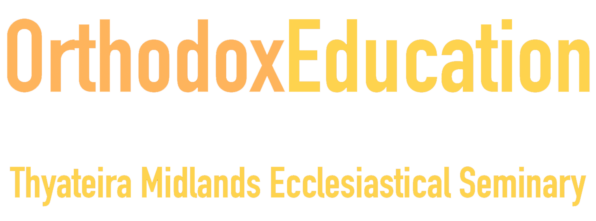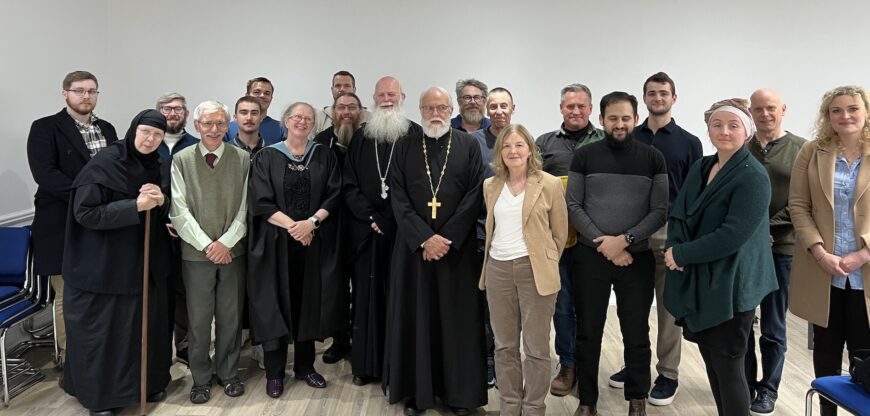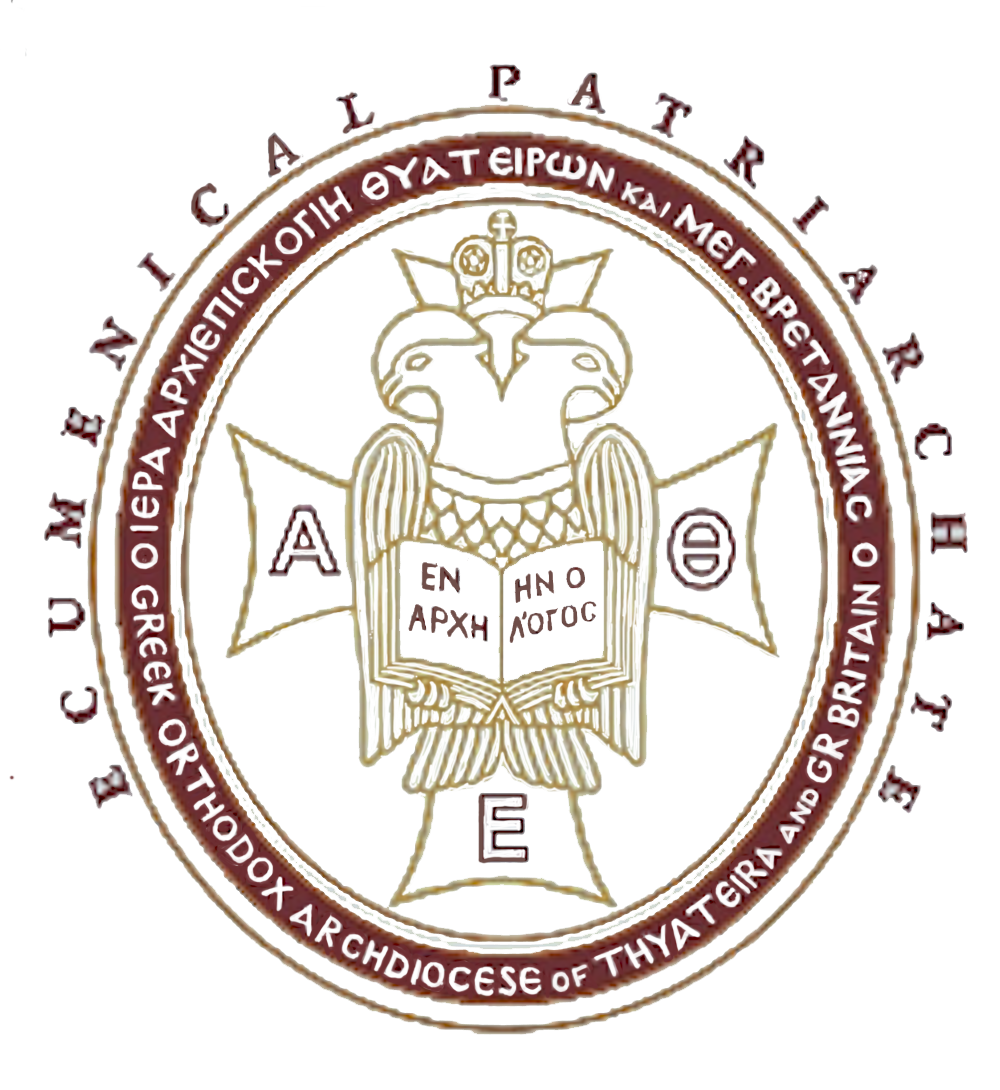First Day of the 2024-5 Course. The Courses run concurrently on the 2nd. Saturday of each month.
We had a friendly meeting over coffee, with both Certificate and Diploma Group present, and then went on to brief prayers. In the Certificate room, Melangell spent some time going over the method of doing academic presentations and demystified the process before she, Father Stephen, Father Philip, and Father Deacon Stephen gave the introductory lectures – ranging from background to the New Testament, Early Christianity and the Mysteries of the Church. The Diploma is a rolling course over two years, meaning that both years I and II follow the same programme. If you finished your certificate last year, you don’t have to wait for year I to come round again – they are interchangeable. Fr. Deacon Stephen launched the New Testament Studies with St. John’s Gospel for the Diploma Course. Fr. Stephen moved through various aspects of Liturgy – including a visit to the church – while Fr. Philip made fasting and asceticism seem a most inviting process! Theo Andreou made his debut with the theology of the Incarnation and big names in the Alexandrian fathers; he was asked a wide variety of questions and succeeded in making the subject of who or what is a theologian accessible and thought-provoking. It was a good day altogether, and many nervous faces at the beginning of the day, relaxed, and they looked animated and keen to go on.
A Typical Mid-term Day!
The academic year for everyone at TMES is well underway, and on February 8th, both the Certificate and Diploma groups will continue their charge into the fray, wrestling with an array of topics from Church History to Biblical Studies. To start things off in the Certificate room, Theo Andreou will introduce the class to the Nestorian Controversy, including its key figures and their respective theological visions. Melangell will then take over to discuss the shape of Old Testament history. After the break, Fr. Philip aims to familiarise the students with the practical goings-on of the Divine Liturgy, before delving into its theological interpretations. To finish the day, Sr. Theovouli will present on the problem of Iconoclasm, its history, and its interrelatedness to Christology.
Over in the Diploma room, the day kicks off with a heavy topic as Fr. Philip talks about the Fall and its consequences, both anthropologically and cosmically. Sr. Theovouli will then continue with her series on monasticism, which was met with much enthusiasm in January. Moving on from the origins and development of early monasticism, she will introduce the group to Hesychasm and the Jesus Prayer. Fr. Deacon Stephen, our Biblical Studies expert, will also be there. He will begin his first session on the Gospel of John, and give an exposition of the concept: ‘the God of our Fathers’. And continuing with his outline of Early Christian Doctrine, Theo Andreou will focus on the Trinitarian and Christological ideas that arose in the aftermath of Nicaea (325). It’s all set to be a great day at TMES, and we look forward to seeing everyone soon!
A Tutor Comment
An important aspect of our courses is preparing men and women for leadership in the Orthodox community. Unlike the typical university course we are focussed on what might be called applied theology – pastoral theology: that is, how the Teaching of the Church becomes the basis for dynamic and engaged community life. For those considering or preparing for the diaconate or priesthood, it can be an important bridge into pastoral service. For those engaged in their communities as cantors or catechists, or in similar position the courses are designed to give you the background to perform your ministry more effectively. We are blessed, first and foremost, as a seminary to enable us to encourage those contemplating such responsibilities.
However, the seminary has an equally important role in preparing Orthodox men and women to witness, by our lives and work, in a world which is increasingly non Christian. Many of us teach and hold responsible positions in diverse walks of life, and these courses will help you to meet the challenges of the living and witnessing to the faith in an Orthodox way.
Women are the backbone of the family, and the first source of teaching for the very young, guiding them all the way through the complex problems growing up in a multi cultural society which often challenges Christian beliefs. For women in this time, participating in the training the TMES Courses offer can give them a solid foundation which will enable them to pass on their faith with confidence to the next generation.
Finally, many of us are converts from other Christian religions or none. In the early Church, new converts had a period of ongoing teaching ‘mystagogia’ after baptism which helped with their ongoing conversion of life. These Courses can help you greatly in this readjustment.
Student Recommendations
Chris. I would recommend studying at TMES because orthodoxy is so rich and deep, it is important to properly understand the basics and have to tools to learn and study more. Also the lectures are great and interactive. In 3 years on the course. I never not learned something amazing. The lecturers are informative, approachable and very knowledgeable. I highly recommend the course for men (even if not considering or being considered for liturgical ministry) and women.
Harry. I have nothing but the highest praise for the work being done at TMES. The courses are comprehensive and well pitched and are combined with the right degree of support to aid you in your learning. The seminars themselves are fascinating and engaging. If you wish to learn more about the history and tradition of the Orthodox Church, there is no place better.


